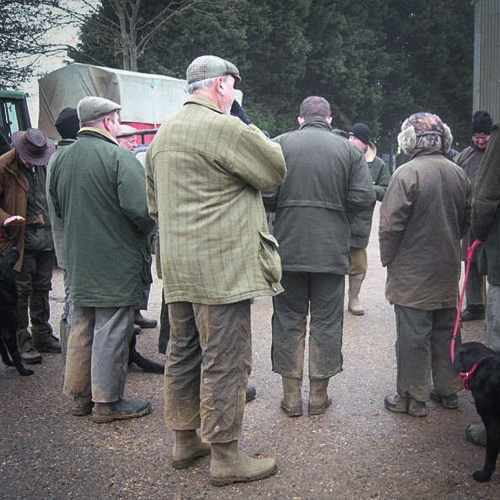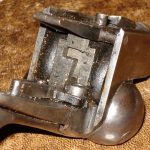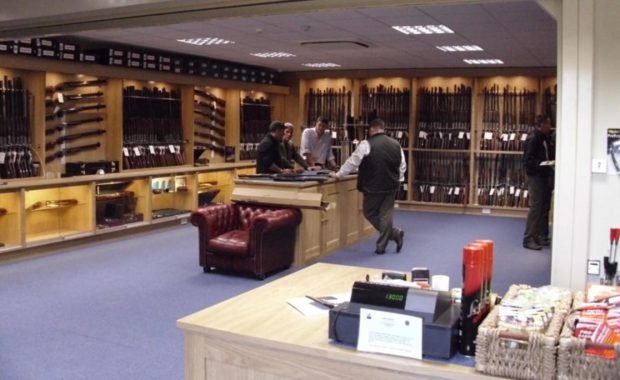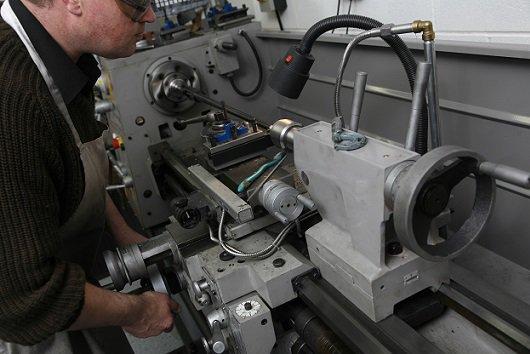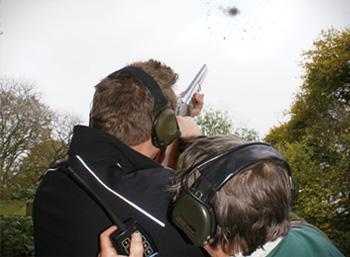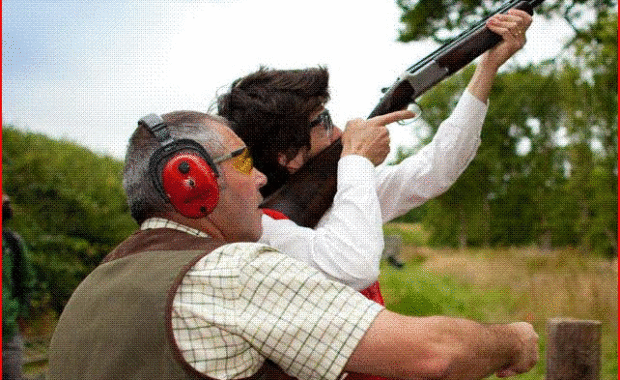For many people, the first introduction to shooting is working in the beating line. Without beaters, there would be no driven game shooting yet this indispensable team is often overlooked and undervalued. Gamekeepers need a good team of people who can be relied upon to come regularly throughout the season.
For many people, the first introduction to shooting is working in the beating line. Without beaters, there would be no driven game shooting yet this indispensable team is often overlooked and undervalued. Gamekeepers need a good team of people who can be relied upon to come regularly throughout the season.
The first few partridge days in September always bring out every Tom, Dick and Harry who appear for that first exciting start to the season but then disappear without trace. They either get a better offer elsewhere or take a dislike to the keeper or other beaters. By October, the keeper should have his team that will see him through the season.
Getting good beaters is always a headache but getting beaters for weekdays can be the equivalent of a migraine. I wonder how many shoot managers think of this when booking a shooting day between Monday and Friday. The majority of people in employment are reluctant to commit to taking a day's holiday and keen youngsters cannot miss school or college.
Weekday beaters are usually made up of the retired, other keepers or those between jobs. But what makes a good beater? There are several simple rules to follow. Staying in line is probably one of the most important and keepers get infuriated by those who are always out in front or lagging behind. Is it really so difficult to keep an eye on your neighbouring beaters to the left and right?
"Beating should not be regarded as a stroll in the countryside or time to catch up with mobile phone messages"
A good beater will be constantly checking either side to see how the line is progressing and watching for the signals to halt, move further apart to fill a gap or to pass on instructions from the keeper. Beating should not be regarded as a stroll in the countryside or time to catch up with mobile phone messages.
We once had a beater who brought his camera and delayed the line while concentrating, prone on the ground, to get a close-up photograph of a Roman snail! When the horn goes for the end of drive, beaters are expected to make haste to the trailer for the next drive and not waste time practising their artistic flair on fauna and flora! Keeping in line requires even spacing and not strolling almost arm in arm with a friend while discussing last night's television. Pheasants can sit tight in the undergrowth and beaters should be observant, checking cover for sitting birds and ensuring every thick patch of bramble is bashed.
"The dreaded phone call early on a shoot day from beaters unable to attend is guaranteed to raise blood pressure and stress levels"
You are paid to rouse birds and not to amble along admiring the scenery. Reliability and a willingness to take responsibility are two attributes always appreciated by a keeper. The dreaded phone call early on a shoot day from beaters unable to attend is guaranteed to raise blood pressure and stress levels. There will always be some beaters who are happy to take the easy track and walk around cover rather than through it but others take pride in working a particular hedge or happy to take charge of a radio and a team to work a flank.
These are the beaters the keeper relies on week after week to make his job easier and, although he might not say so, he is very grateful. All keepers should of course thank their team at the end of day, however much he has shouted at them! Long gone are the days of doffing your cap as the Guns pass by but it is courtesy to allow a Gun through a gateway first or, if crossing a style or other obstacle, offer to hold the gun which should be course be unloaded and open for all to see.
Some knowledge of the estate and peg numbering also helps the visitor who has become separated from the main party for varying reasons.

Back Guns may also require assistance and told where to stand and when to move up as the line progresses forward. A good beater should be willing to despatch game if necessary in a humane way and I use my stick as a priest. A stout stick, of the correct height and weight to carry comfortably all day, should be just as important to your attire as dressing in suitable clothing and waterproof footwear.
Unless you beat on an estate that insists on yellow fluorescent jackets, dark colours are preferable in any style ranging from overalls to waxed outer layers or Teflon coated tweed. A bright pink ski suit, as worn by one young lady on a snowy day is definitely not suitable! Leg coverings should be thorn proof and denim jeans are not a good idea as once wet, they take for ever to dry.
"We had one young lad who turned up in fashionable 'ripped' jeans and spent all afternoon picking thorns from the exposed parts of his legs!"
We had one young lad who turned up in fashionable 'ripped' jeans and spent all afternoon picking thorns from the exposed parts of his legs! Flags are particularly important on partridge days. Some beaters and children in particular, instinctively wave them around with gusto but flags should be kept down and furled until instructed by the keeper to "flag up!"
An advancing line of fluttering flags will soon put birds to flight prematurely whereas the idea is to keep the element of surprise. The sudden sharp crack of a flag is used to turn birds so they fly over the Guns. The success of a shoot lies with the enthusiasm and efficiency of the beaters who should never under-estimate their importance. Towards the end of a drive they are the ones who often spot the runners or mark a bird down that a picker up has not noticed.
Some drives will cover areas previously shot that cannot be disturbed and any dead birds collected should be reported to the keeper who will let the pickers-up know. There is nothing more disheartening than missing your lunch break searching for a lost bird the Gun reported as 'definitely dead' only to find it had already been collected.
"All game should be treated with respect and handled with care"
Some Guns like to keep their birds to carry back to the gun bus but it is polite to offer to take some, particularly if they already have a handful and the Gun is elderly as pheasants can be surprisingly heavy.
All game should be treated with respect and handled with care. At the end of the day beaters should help carry birds either to the game cart or hung up in the beaters trailer. The sooner the birds are back at the chiller for counting, the better. There are now training courses for beaters run by the National Organisation of Beaters and Pickers up (NOBS).

They also hold a data base to place beaters on shoots. In theory this is an excellent idea but some keepers are wary of having 'outsiders' on their ground.Gamekeepers like to keep the whereabouts of release pens restricted to known and trusted individuals for fear of antis or poachers.
A good beater needs to be broad minded and thick skinned as the jokes and conversation on board the beaters trailer is not for the faint hearted or politically correct brigade!
Many beaters remain faithful to the same estate for over 50 years, during which time they no doubt experience significant changes. But one thing that does not change is the satisfaction of a job well done. (This article has been amended from my original printed in the Countryman's Weekly).
